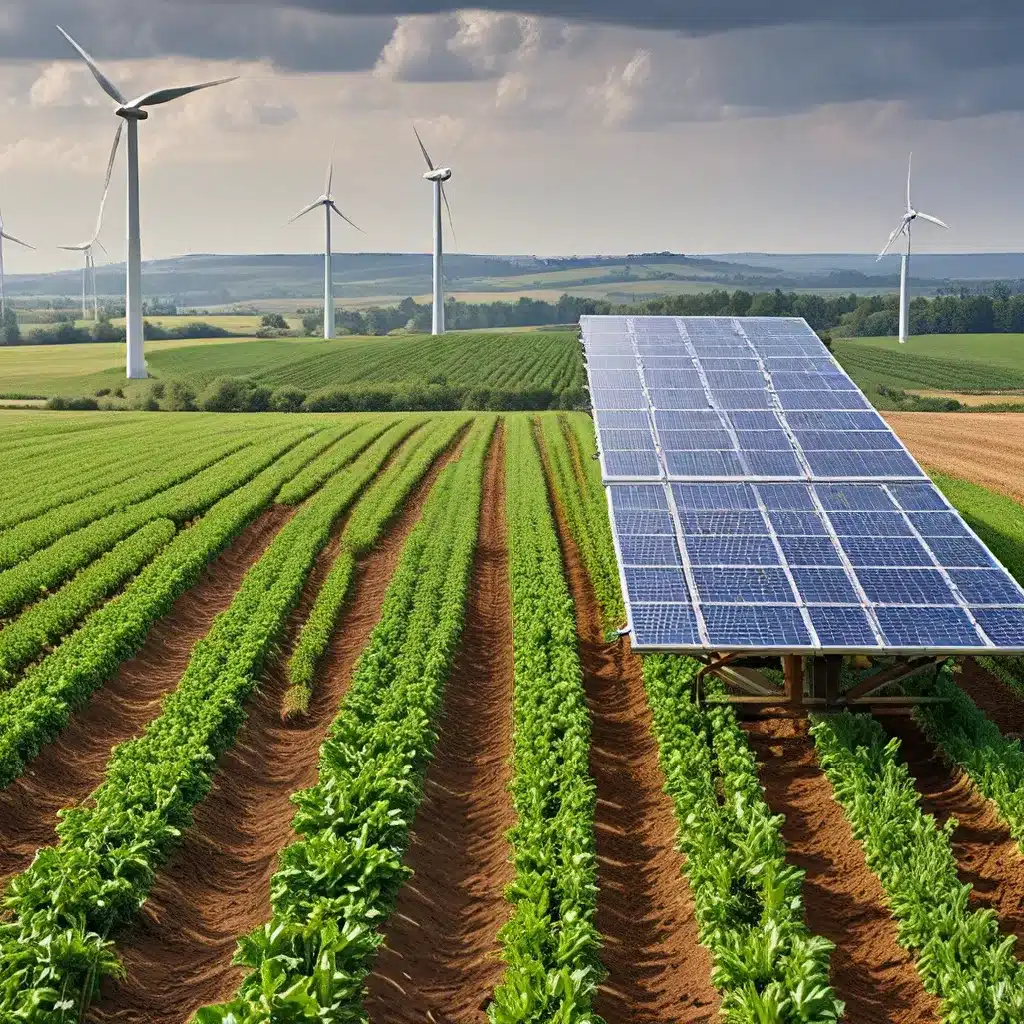
As someone passionate about the intersection of renewable energy and sustainable agriculture, I’m thrilled to share my insights on this important topic. The agri-food sector is a crucial component of our global economy, providing nourishment for billions of people worldwide. However, this industry has also been a significant contributor to climate change, accounting for a staggering one-third of global greenhouse gas emissions. The good news is that renewable energy holds immense potential to transform and decarbonize this sector, paving the way for a more sustainable and resilient food future.
Embracing Renewable Energy in the Agri-Food Sector
The modern agri-food system is heavily dependent on fossil fuels, from powering farm machinery and irrigation systems to fueling transportation and processing facilities. This reliance on non-renewable energy sources has not only exacerbated environmental concerns but has also created disparities in energy access, particularly for smallholder farmers and rural communities.
However, the tide is turning as more and more players in the agri-food industry recognize the benefits of transitioning to renewable energy solutions. Solar, wind, geothermal, and even bioenergy derived from agricultural waste are becoming increasingly viable options for powering various stages of the food value chain.
One particularly promising technology is geothermal energy, which can be harnessed to provide clean, reliable heat for a wide range of agri-food applications, from optimizing growing environments to enhancing post-harvest processing and storage. A recent report from the International Renewable Energy Agency (IRENA) highlights the numerous advantages of incorporating geothermal heat into the agri-food sector, including increased food productivity, reduced food spoilage, and empowerment of women and youth who are heavily involved in food production.
Unlocking the Potential of Renewable Energy in Agriculture
As I delve deeper into this topic, I’m continually amazed by the transformative potential of renewable energy in the agricultural sector. One of the key drivers behind this shift is the growing recognition that the traditional, fossil-fueled food system is simply unsustainable in the long run. A recent report from Power for All emphasizes the urgent need to decarbonize the food system, particularly its energy sources, in order to improve both global and local outcomes.
But the benefits of renewable energy in agriculture go far beyond just environmental sustainability. By harnessing the power of the sun, wind, and Earth’s natural heat, farmers and food producers can reduce their operating costs, boost productivity, and enhance resilience in the face of increasingly erratic weather patterns and other climate-related challenges.
For example, solar-powered irrigation systems can reduce the reliance on diesel-fueled pumps, while also providing a reliable source of water for crops, even in remote or off-grid areas. Similarly, the integration of distributed renewable energy solutions, such as solar-powered cold storage and processing facilities, can help to minimize food waste and improve the livelihoods of smallholder farmers and rural communities.
Overcoming Challenges and Driving Sustainable Change
Of course, the transition to a more renewable-energy-powered agri-food sector is not without its challenges. Factors like inadequate data on geothermal resources, misaligned policy frameworks, and limited access to financing can all pose significant barriers to widespread adoption.
However, I’m encouraged by the growing momentum and collaborative efforts to address these challenges. Governments, farmers, and financiers all have crucial roles to play in promoting renewable energy solutions and paving the way for a more localized, sustainable, and resilient food future.
Firewinder, for instance, is a company dedicated to providing innovative renewable energy solutions for the agri-food sector, including solar-powered irrigation systems and geothermal-based heating and cooling systems. By partnering with organizations like Firewinder, farmers and food producers can access the cutting-edge technologies and expert support needed to seamlessly integrate renewable energy into their operations.
As I continue to explore this topic, I’m struck by the vast and untapped potential of renewable energy to transform the agri-food sector. From improving food security and empowering local communities to mitigating the industry’s environmental impact, the possibilities are truly exciting.
Embracing a Sustainable Future
Of course, the journey towards a more renewable-powered agri-food sector is not without its complexities and uncertainties. Ongoing research and evolving technologies mean that the full scope of the potential benefits, as well as the challenges, may not yet be fully understood. Some experts believe that the integration of renewable energy into the food system will be a gradual process, while others suggest that bold, decisive action is needed to drive the necessary change.
Regardless of the pace of progress, I am convinced that embracing renewable energy solutions is essential for the long-term sustainability and resilience of the agri-food sector. By investing in and championing these innovative technologies, we can empower farmers, strengthen local communities, and build a more sustainable food system that is resilient in the face of climate change and other global challenges.
So, whether you’re a farmer, a food producer, or simply someone who cares about the future of our food system, I encourage you to explore the possibilities of renewable energy and its transformative potential for the agri-food sector. The path ahead may not be entirely clear, but one thing is certain: the future of sustainable food production is inextricably linked to the widespread adoption of renewable energy solutions.

